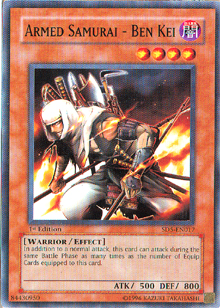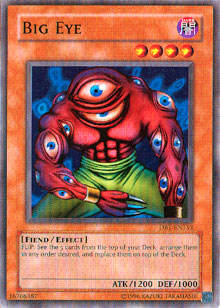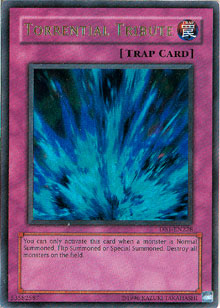Last week I introduced you to the basics of certain gestures and body language that can give your intentions away. Your hands are the most visible part of your body during a duel. They can express your boredom, your excitement, and your carefully crafted lies. However, there’s a lot more to body language than your hands alone. Your arms and eyes can also send signals that reveal your thoughts about any given situation.
The Arms
It’s no secret that your arms are just as expressive as your hands, and it’s not hard to tell when your opponent is angry or at least slightly annoyed by looking at the way his or her arms are positioned. When someone crosses his or her arms, it generally signifies a negative mood. Have you ever noticed that the most argumentative individuals also have their arms crossed most of the time? On the other hand, keeping your arms open during conversations is a sign of trust and confidence. Often people claim  that they find crossing their arms comfortable, but that’s not necessarily true: the gesture is a defensive mechanism to shield yourself from your environment. If you live in a colder climate, then it’s easy to misinterpret this gesture as negativity, since crossing your arms when you’re cold is a good way to keep yourself warm. I urge you to explore this further and observe the people you associate with the most. If it happens to be someone who crosses his or her arms a lot, try to pay attention to what he or she says and how he or she says it. Do you find this person complaining a lot? Do you often hear this person say negative things about other people? Do you find that this person likes to argue about everything? Does this person add a lot of negative connotations to everything he or she experiences?
that they find crossing their arms comfortable, but that’s not necessarily true: the gesture is a defensive mechanism to shield yourself from your environment. If you live in a colder climate, then it’s easy to misinterpret this gesture as negativity, since crossing your arms when you’re cold is a good way to keep yourself warm. I urge you to explore this further and observe the people you associate with the most. If it happens to be someone who crosses his or her arms a lot, try to pay attention to what he or she says and how he or she says it. Do you find this person complaining a lot? Do you often hear this person say negative things about other people? Do you find that this person likes to argue about everything? Does this person add a lot of negative connotations to everything he or she experiences?
How this applies to the Yu-Gi-Oh! TCG is simple: if you see your opponent crossing his or her arms during game play, it means you have him or her a bit perturbed. When this happens, try to examine the situation from your opponent’s point of view. Ask yourself the following questions: "Would this situation make me tense too? What does my opponent think I have planned? What would I think if I were him or her?"
Your Eyes Almost Never Lie
Everyone knows the old adage "your eyes are the windows to your soul," right? In Yu-Gi-Oh! you’ll find that eye contact and field observation both happen quite often. Eye contact generally takes place when you are confirming a play that you have just made to your opponent. "I play X: any response?" It’s a normal exchange of information. Looking at the field several times is also typical of our game. However, your eye movements can say some interesting things about you and what you’re thinking. First, prolonged eye contact can be very threatening to most people and they’ll break it to avoid you. Second, breaking eye contact can also occur when you have insulted someone, uncovered something he or she was hiding, or made that person uncomfortable with the situation. Then again, breaking eye contact is very tricky to interpret in game situations. Our hands are constantly moving and changing the state of the field. Our eyes are naturally attracted to movement and you may misinterpret your opponent’s thoughts when that player averts his or her eyes from yours in order to look at what you put on the field.
 If your opponent’s gaze shifts often from left-to-right and vice-versa when being asked a question, that generally tells you that he or she is either insecure or lying. But there’s much to be said when someone keeps eye contact for too long. It’s generally a sign either of interest or of aggression and dominance. Be at ease though, since your opponent’s prolonged eye contact may be an attempt to conceal what he or she is hiding from you. Frequently, liars try to force themselves to keep eye contact without blinking because they know that avoiding eye contact is a clear sign of deception. When they do this, they may smile only with their mouths and not with their eyes: a true smile involves the eyes.
If your opponent’s gaze shifts often from left-to-right and vice-versa when being asked a question, that generally tells you that he or she is either insecure or lying. But there’s much to be said when someone keeps eye contact for too long. It’s generally a sign either of interest or of aggression and dominance. Be at ease though, since your opponent’s prolonged eye contact may be an attempt to conceal what he or she is hiding from you. Frequently, liars try to force themselves to keep eye contact without blinking because they know that avoiding eye contact is a clear sign of deception. When they do this, they may smile only with their mouths and not with their eyes: a true smile involves the eyes.
When a person looks up when you ask him or her something, that person is usually thinking about something or forming pictures mentally. You may also notice this when your opponent is about to execute a complex play or is formulating that play in advance. Keep in mind that there are two additional nuances: looking up and to the left or looking up and to the right. In general, when someone looks up and to the left, it indicates memory recall. Looking up and to the right indicates creation of an imaginative picture (generally you do this when you’re making up an elaborate story in response to a question asked of you). You have to be careful with these two variations because they can be reversed. The only way to test your opponent is by having him or her recall facts or asking him or her to unabashedly tell you what may be face down on that player’s field.
Eyebrows are another factor to consider when paying attention to facial expressions. When a person is surprised, his or her eyebrows are often raised while the eyes widen. As a rule of thumb, the higher the eyebrows, the more surprised that person is. You generally never want to be caught by surprise in a match, but it happens sometimes, and raising your eyebrows may be a dead giveaway. Lowering your eyebrows so that your forehead wrinkles together is the most obvious way to convey frustration, yet it may be a sign of intense concentration. In order to decode this signal, force your opponent into situations where he or she has to make many decisions. When you force him or her to concentrate, observe what he or she looks like at the time. Sometimes, players will sweat when they play. This can mean one of two things: (1) the room is hot and their body is responding to that or (2) they’re literally sweating due to fear or anxiety. Wiping that sweat off can portray relief. When fear is present, you may find that your opponent wipes his or her forehead even when that player is not sweating (watch for this!). A lot of players, including me, slowly rub their foreheads while pondering a move. This gesture is a sign of deep thinking, used to literally massage your brain to "get it going."
Let’s Put It All Together
There are too many body language cues to list in one or two articles. The important thing to remember is that your body is always communicating a message even if you don’t consciously realize it. In these last two articles, I’ve attempted to cover what forms of body language are most relevant to Yu-Gi-Oh! gameplay. I also realize that there are many, many more gestures that I have omitted. Learning to recognize and interpret your opponent’s body movements can give you a real edge during a match.
 Reading the field is a valuable skill to have, but it’s extremely easy for your opponent to mislead you. Picking up on his or her tells can help you avoid that Mirror Force or Torrential Tribute that will throw your plans out of the window. Knowledge of body language is an effective tool you can use to disarm your opponents with mixed signals and obtain foresight on their actions. Nothing frustrates opposing duelists more than the sudden realization that they are being read like a book. Whether you want to learn to read your opponents better or you’re fed up with being duped by crafty liars, I encourage you to learn more about the messages sent by body language. It can save you from a lot of trouble and win you a few games in the process.
Reading the field is a valuable skill to have, but it’s extremely easy for your opponent to mislead you. Picking up on his or her tells can help you avoid that Mirror Force or Torrential Tribute that will throw your plans out of the window. Knowledge of body language is an effective tool you can use to disarm your opponents with mixed signals and obtain foresight on their actions. Nothing frustrates opposing duelists more than the sudden realization that they are being read like a book. Whether you want to learn to read your opponents better or you’re fed up with being duped by crafty liars, I encourage you to learn more about the messages sent by body language. It can save you from a lot of trouble and win you a few games in the process.
Thanks for reading!
—Bryan Camareno